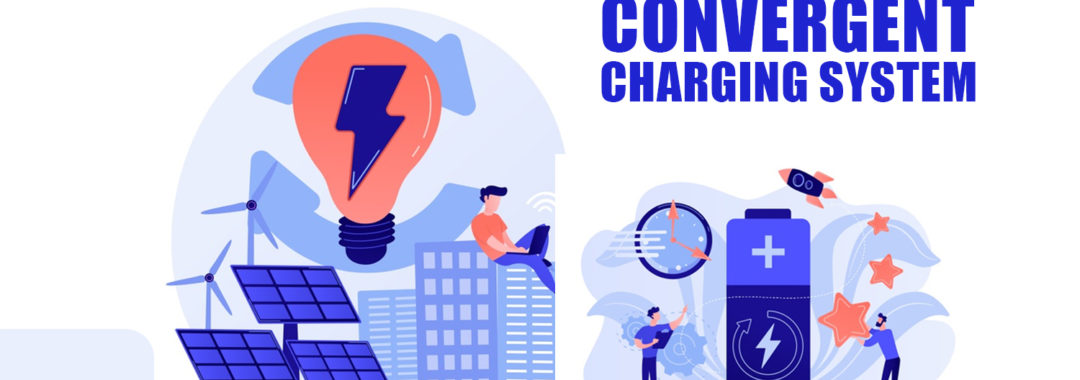In the fast-paced world of telecommunications, the demand for streamlined billing systems that support multiple service offerings simultaneously has never been greater. Integrated convergent charging support services address this need by providing a unified platform for all user interactions and transactions, regardless of the type of service being used. This approach not only simplifies the billing process but significantly enhances the customer experience by providing clarity, consistency, and accessibility. Below, we explore the multifaceted benefits of integrated convergent charging support services and their impact on customer satisfaction and loyalty.
1. Unified Billing Interface
Convergent charging systems integrate all billing aspects into one interface, allowing customers to receive a single invoice for multiple services like voice, data, video, and content subscriptions. This unification eliminates the confusion and inconvenience of managing multiple bills and payment processes. A single, clear, and detailed statement makes it easier for customers to understand their charges, leading to fewer complaints and queries. This transparency builds trust and enhances the overall customer relationship with the service provider.
2. Real-Time Charging and Cost Control
One of the significant advantages of integrated convergent charging is the ability to charge and control costs in real-time. Customers appreciate when they can access their usage information immediately and make informed decisions based on real-time data. This functionality is particularly crucial for data-intensive services, where users benefit from being alerted before they exceed their plan limits, thereby avoiding unexpected charges. Real-time interactions foster a sense of control and empowerment among customers, directly boosting their satisfaction and perception of the provider’s service quality.
3. Personalized Service Offerings
Integrated convergent charging systems enable service providers to tailor their offerings to meet the individual needs of customers. By analyzing customer data and usage patterns, providers can create personalized service bundles and promotions that appeal to specific customer segments. This level of personalization makes customers feel valued and understood, which enhances loyalty and increases the likelihood of upselling and cross-selling services based on the customer’s actual needs and preferences.
4. Improved Customer Support
With a convergent charging system, customer support becomes more streamlined and efficient. Support teams have access to a holistic view of the customer’s account, including all subscribed services, billing history, and customer interactions. This integration allows for quicker resolution of issues and queries as support staff do not need to toggle between different systems or databases. Faster and more accurate support responses improve the overall customer experience, leading to higher satisfaction rates.
5. Enhanced Transparency and Fairness
Transparency in billing and charges is crucial for maintaining customer trust. Convergent charging systems provide detailed and understandable breakdowns of charges for all services, which helps in demystifying bills for customers. This clarity is appreciated and can significantly reduce the perceived complexity of telecommunications billing. Moreover, the fairness of being charged precisely for the services used, with no hidden fees or unexpected charges, reinforces a positive customer experience.
6. Seamless Service Integration
As telecommunications companies expand their offerings to include a broader range of digital services, the ability to integrate these into a single billing system becomes essential. Convergent charging support services facilitate the seamless integration of traditional telecom services with newer digital services such as streaming, cloud storage, or IoT-based services. This capability not only simplifies the user experience but also encourages the adoption of additional services, enhancing customer engagement and satisfaction.
7. Scalability and Flexibility
Integrated convergent charging systems are designed to be scalable and flexible, accommodating the growth of the service provider and the evolving needs of customers. As new services are developed or existing ones are expanded, the system can easily adapt without disrupting the customer experience. This flexibility ensures that as the market changes, the billing system can change with it, continuously supporting the latest services and technologies without degradation in service quality.
8. Reduction in Billing Errors
The automation features of convergent charging systems significantly reduce the chances of billing errors, which are a common source of customer frustration. Automated systems are less prone to the errors inherent in manual billing processes, ensuring accuracy and consistency in billing. Fewer errors translate to fewer customer complaints and disputes, which not only saves operational costs related to resolving these issues but also enhances the overall customer experience.
9. Faster Time-to-Market for New Offerings
The integrated nature of convergent charging support services allows telecommunications companies to quickly and efficiently roll out new products and services. This rapid deployment capability is crucial in a competitive market where speed to market can be a significant competitive advantage. Customers benefit from quicker access to new and innovative services, enhancing their experience and satisfaction with the provider.
10. Sustainable Customer Relationships
Finally, the cumulative effect of all the advantages provided by integrated convergent charging systems is the fostering of sustainable, long-term relationships with customers. By consistently meeting customer needs and exceeding expectations in terms of service quality, billing transparency, and support, providers can significantly increase customer loyalty and retention. Long-term customer relationships are not only profitable but also contribute to a stable and predictable business environment.
Integrated convergent charging support services are more than just a technical solution for billing; they are a strategic tool that enhances every aspect of the customer experience. By focusing on the needs and preferences of the customer, these systems help build a loyal customer base, reduce churn, and set the stage for continuous engagement and growth.
Conclusion
Integrated convergent charging support services stand as a cornerstone for enhancing customer satisfaction in the telecommunications sector. By streamlining billing processes and providing real-time data access, these systems simplify user experiences, promote transparency, and empower customers with control over their service usage. The scalability and adaptability inherent in convergent charging ensure that telecom companies can swiftly adjust to new market demands and technological advancements, fostering stronger customer relationships and driving business growth. Ultimately, these systems are not just operational tools but strategic assets that enhance customer loyalty and competitive advantage in a rapidly evolving industry.
